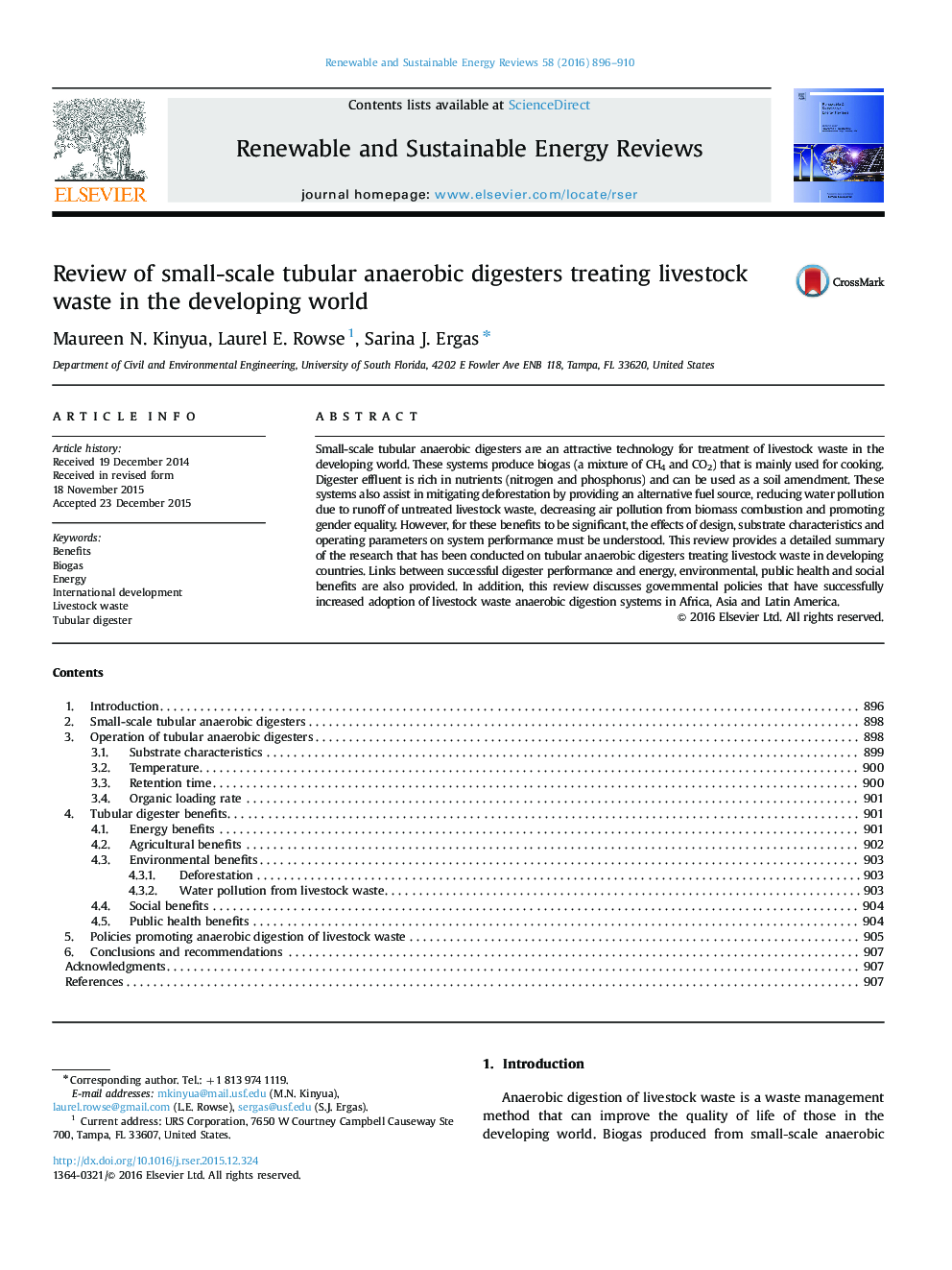| Article ID | Journal | Published Year | Pages | File Type |
|---|---|---|---|---|
| 8114350 | Renewable and Sustainable Energy Reviews | 2016 | 15 Pages |
Abstract
Small-scale tubular anaerobic digesters are an attractive technology for treatment of livestock waste in the developing world. These systems produce biogas (a mixture of CH4 and CO2) that is mainly used for cooking. Digester effluent is rich in nutrients (nitrogen and phosphorus) and can be used as a soil amendment. These systems also assist in mitigating deforestation by providing an alternative fuel source, reducing water pollution due to runoff of untreated livestock waste, decreasing air pollution from biomass combustion and promoting gender equality. However, for these benefits to be significant, the effects of design, substrate characteristics and operating parameters on system performance must be understood. This review provides a detailed summary of the research that has been conducted on tubular anaerobic digesters treating livestock waste in developing countries. Links between successful digester performance and energy, environmental, public health and social benefits are also provided. In addition, this review discusses governmental policies that have successfully increased adoption of livestock waste anaerobic digestion systems in Africa, Asia and Latin America.
Related Topics
Physical Sciences and Engineering
Energy
Renewable Energy, Sustainability and the Environment
Authors
Maureen N. Kinyua, Laurel E. Rowse, Sarina J. Ergas,
